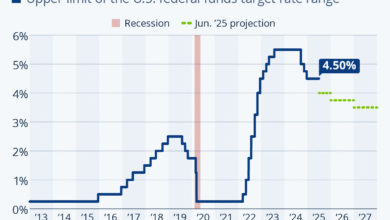Starling Bank Annual Profit Drops 26% Amid Covid Loan Fraud

Starling Bank annual profit has taken a notable hit, as the British neobank reported a staggering 26% drop in its earnings for the year concluding in March 2025. With a profit before tax of £223.4 million, this decline has raised concerns amid rising fears related to financial crime regulatory fines and allegations of Covid loan fraud. Starling Bank’s financial performance has been impacted not only by a £29 million penalty from the Financial Conduct Authority but also by issues stemming from the Bounce Back Loan Scheme (BBLS) designed during the pandemic. While revenue saw a modest increase of 5%, the fallout from these setbacks strains confidence in the bank’s future profitability. Moving forward, stakeholders will be keenly awaiting the 2025 profit report to gauge the institution’s recovery trajectory in a competitive market.
In recent developments, the annual financial performance of Starling Bank is under scrutiny, following a considerable reduction in profits attributed to various challenges. This British digital bank reported a significant downturn in earnings as it navigates the aftermath of regulatory scrutiny and the implications of Covid-related loan guarantees. The bank, known for its innovative online services, must now address the hurdles that have led to this decline, particularly the fallout from fraud related to the Bounce Back Loan Scheme and associated fines. As we delve into the intricacies of Starling Bank’s financial landscape, the importance of transparency and innovation in overcoming these fiscal challenges will become evident. Observers are particularly interested in how these factors will influence the bank’s strategies and profitability moving forward.
Starling Bank’s Annual Profit Decline: A Closer Look
Starling Bank, the British neobank backed by Goldman Sachs, reported a striking annual profit before tax of £223.4 million for the year ending March 31, 2025. This figure marks a 26% decrease from the previous year, signaling challenges in the bank’s operational efficiency. Factors contributing to this downturn include a hefty regulatory fine alongside complications arising from the Covid-era Bounce Back Loan Scheme. The bank’s Chief Financial Officer, Declan Ferguson, articulated these issues as ‘legacy problems’ that Starling addressed with transparency and cooperation with the British Business Bank.
The decline in Starling Bank’s profits can be partially attributed to the regulatory fine of £29 million imposed by the U.K.’s Financial Conduct Authority due to deficiencies in the bank’s financial crime prevention systems. This fine underscores the increasing scrutiny financial institutions face regarding compliance and anti-fraud measures. Additionally, the complications with the Bounce Back Loan Scheme, designed to support businesses during the pandemic, have highlighted the unforeseen consequences of urgent government initiatives during financial crises.
Impact of Covid Loan Fraud on Starling’s Profitability
The Covid loan fraud issue has severely impacted Starling Bank’s profitability. As one of the key lenders authorized to disburse loans under the Bounce Back Loan Scheme, Starling found itself under scrutiny when it identified a batch of loans that it could not guarantee due to regulatory lapses in its fraud assessment processes. The resultant provisioning of £28.2 million in this year’s accounts reflects the bank’s commitment to compliance and transparency, even as it navigates these complex challenges.
This situation not only affects Starling Bank’s immediate profit margins but also poses long-term reputational risks. The inherent risks associated with fraud in emergency lending programs highlight the need for robust verification processes. Starling’s proactive measures in addressing these issues, including cooperation with the British Business Bank, are critically important as they seek to regain trust from both regulators and customers.
Starling Bank’s Resilience in a Competitive Neobank Landscape
Despite the challenges faced during the reporting period, including a notable profit drop, Starling Bank remains a strong competitor in the British neobank sector. With total revenues reaching £714 million—up about 5% from £682 million the previous year—the bank continues to demonstrate growth potential, even amidst obstacles. This growth, while slower compared to the 50% increase in the previous fiscal year, is still commendable given the broader impacts of financial regulations and market competition.
Starling’s success can be attributed to its innovative approach to banking, offering fee-free current accounts and seamless lending solutions through its mobile application. Furthermore, with backing from significant financial players such as Goldman Sachs and Fidelity Investments, the bank is well-positioned to navigate the competitive landscape against other fintech rivals like Monzo and Revolut. This resilience showcases Starling’s adaptability and determination to thrive despite recent profit challenges.
Regulatory Challenges Facing Starling Bank
Starling Bank’s recent experiences illustrate the increasing pressure that financial institutions face from regulatory bodies. The £29 million fine imposed by the Financial Conduct Authority for deficiencies in preventing financial crime highlights the imperative for banks to adopt stringent compliance measures. This fine, coupled with issues related to the Bounce Back Loan Scheme, serves as a reminder of the complexities that arise from operating in a heavily regulated environment, particularly after crises like the Covid pandemic.
Furthermore, navigating regulatory requirements is critical for maintaining customer trust and ensuring operational integrity. Starling Bank’s transparent acknowledgment of its shortcomings, combined with its commitment to rectify these issues, is crucial for its long-term viability. The focus on strengthening its financial crime prevention systems is likely to be a key area of development as the bank looks to stabilize and enhance its performance moving forward.
Starling Bank’s Future Profit Prospects
Looking ahead, the outlook for Starling Bank’s profitability will hinge on its ability to address the legacy issues stemming from regulatory fines and Covid loan fraud. With the anticipated recovery in the economic landscape post-pandemic, the bank can capitalize on new opportunities for growth within the digital banking sector. Its investment in technology and customer-centric services could lead to an upward trajectory in sales and profit margins, particularly if it improves fraud detection capabilities and compliance measures.
As Starling positions itself for future success, focusing on strategic partnerships and scaling its customer base will be vital. The bank’s roadmap to recovery could include diversifying its offerings or enhancing existing services to attract a broader demographic. If managed effectively, these strategies will likely translate into improved financial performance in the coming fiscal years, allowing Starling to regain and possibly exceed previous profit levels.
Navigating Financial Crime Prevention in Banking
As financial crime becomes increasingly sophisticated, neobanks like Starling are faced with the dual challenge of maintaining robust fraud prevention systems while also delivering user-friendly banking experiences. The complexities of managing compliance with anti-fraud regulations are compounded by the rapid evolution of digital banking technologies. Starling Bank has acknowledged this challenge and is actively working to enhance its preventive measures to safeguard against various forms of financial misconduct.
In response to the £29 million fine for financial crime failings, Starling has committed to overhauling its fraud detection and prevention systems. This initiative not only aims to rectify current deficiencies but also establishes a culture of accountability within the organization. The proactive strategy of investing in advanced technology will help the bank mitigate risks associated with regulatory compliance and safeguard its reputation in the competitive financial marketplace.
Assessing the COVID-19 Loan Schemes’ Impact on Banks
The Covid-19 pandemic prompted the U.K. government to implement loan schemes like the Bounce Back Loan Scheme (BBLS) to support struggling businesses. While these schemes were intended to provide financial relief during unprecedented times, they also introduced significant risks related to fraud. Starling Bank’s experience highlights how quickly economic relief measures can expose vulnerabilities in financial institutions’ risk management strategies, leading to potential financial losses.
For Starling and other banks involved in these emergency funding programs, the need for rigorous checks has never been more apparent. The bank’s admitted weaknesses in its historical fraud checks and subsequent decisions to remove government guarantees on certain loans demonstrate a commitment to regulatory compliance and responsibility. By prioritizing financial integrity, Starling aims to guide its operations toward a more secure and sustainable future.
Comparative Growth of British Neobanks
The landscape of British neobanks is rapidly evolving, with competition heating up amongst major players like Starling, Monzo, and Revolut. Each institution brings unique offerings to the table, but they also face similar challenges related to fraud and regulatory compliance. Starling Bank’s performance, despite a recent profit drop, showcases its potential to maintain competitive revenue growth amidst these challenges, setting the stage for future improvements.
With an increasing number of consumers gravitating towards digital-first banking solutions, the opportunity for growth remains strong. Starling’s strategic positioning in this competitive arena could lead to market share gains as it enhances its service offerings and mitigates risks associated with financial crime. The race to attract technologically savvy banking customers will be crucial, emphasizing the importance of innovation and security.
Long-term Strategies for Starling Bank’s Recovery
As Starling Bank navigates through its current challenges, establishing robust long-term strategies will be vital for its recovery and sustained growth. The bank’s recent profit decrease presents an opportunity for introspection and innovation, allowing management to refine operational practices and enhance customer relations. By focusing on core values such as transparency and customer trust, Starling can fortify its position in the banking industry.
In addition to rebuilding its reputation, Starling’s future plans might include exploring partnerships with fintech innovators and expanding its product range to meet customer needs effectively. Success in the financial landscape requires agility and a keen understanding of market dynamics, which Starling appears poised to develop further as it aims for a prosperous recovery in the coming years.
Frequently Asked Questions
What factors contributed to the Starling Bank profit drop reported for 2025?
Starling Bank’s annual profit for 2025 fell by 26% due to multiple factors, including a £29 million fine imposed by the Financial Conduct Authority for deficiencies in financial crime prevention systems, as well as issues related to Covid loan fraud concerning the Bounce Back Loan Scheme.
How did Covid loan fraud impact Starling Bank profits?
The Covid loan fraud issue significantly affected Starling Bank’s profits by leading to an additional £28.2 million provision in their accounts. This provision was made to address the identification of potentially non-compliant Bounce Back Loans which could not be guaranteed by the government due to weaknesses in the bank’s fraud checks.
What was the annual profit of Starling Bank for the fiscal year ending March 31, 2025?
For the fiscal year ending March 31, 2025, Starling Bank reported an annual profit before tax of £223.4 million, which represented a 26% decrease compared to the previous year’s figures.
What is the significance of the financial crime regulatory fine on Starling Bank’s annual profit?
The financial crime regulatory fine of £29 million imposed on Starling Bank played a crucial role in the significant drop in their annual profit. These penalties highlight the bank’s need to strengthen its financial crime prevention measures to avoid similar impacts in the future.
What changes did Starling Bank make in response to the Bounce Back Loan Scheme issues?
In response to issues with the Bounce Back Loan Scheme, Starling Bank identified certain loans that did not comply with guarantee requirements. The bank cooperated with the British Business Bank and voluntarily agreed to remove the government guarantee on those loans, leading to a substantial financial provision in their profit report.
How did Starling Bank’s revenue growth in 2025 compare to previous years?
Starling Bank’s revenue grew by approximately 5% in 2025, reaching £714 million, which is a slowdown compared to the over 50% revenue growth experienced in the previous fiscal year, reflecting the challenges posed by regulatory fines and Covid loan fraud issues.
What is Starling Bank’s outlook following the annual profit drop in 2025?
Despite the 26% drop in annual profit for 2025, Starling Bank’s management, including CFO Declan Ferguson, remains focused on addressing legacy issues and enhancing compliance measures. The bank aims to recover and strengthen its financial performance moving forward.
| Key Metric | Value |
|---|---|
| Annual Profit Before Tax | £223.4 million (down 26% YoY) |
| Regulatory Fine | £29 million |
| Revenue | £714 million (up 5% YoY) |
| Notable Issues | Covid loan fraud, FCA fine, BBLS non-compliance |
| Expected Credit Loss Provision | £800,000 for specific BBLS loans |
Summary
Starling Bank’s annual profit has notably declined, reporting a £223.4 million profit before tax, marking a 26% drop compared to the previous year. This decrease is primarily attributed to a regulatory fine and complications arising from the Covid-era Business Bounce Back Loan Scheme. Despite the challenges faced, including issues surrounding loan compliance and financial crime prevention, Starling remains a competitive player in the market with an annual revenue increase, illustrating resilience in its operations.




